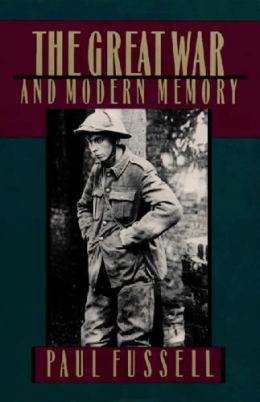
In The Great War and Modern Memory, published in 1975, distinguished military historian Paul Fussell makes the case not just that World War I is the first modern war and that it has informed how we think about armed conflict ever since (both of which are true) but that on a more existential level it fundamentally altered humanity’s view of itself and the world. In this astonishingly wide-ranging survey (incorporating military studies, political science, literary criticism and social theory), Fussell examines the works of several classic World War I writers, including Siegfried Sassoon and Robert Graves, demonstrating that their influence on the generations that followed has so permeated our worldview — including our comfort with irony, dislocation, dichotomy and alienation, not to mention our distrust of institutions and authority, as well as our absolute assumption that we live in a postlapsarian world — that today even those who have never read these writers (let alone heard of them) have been touched by the legacy of World War I.
